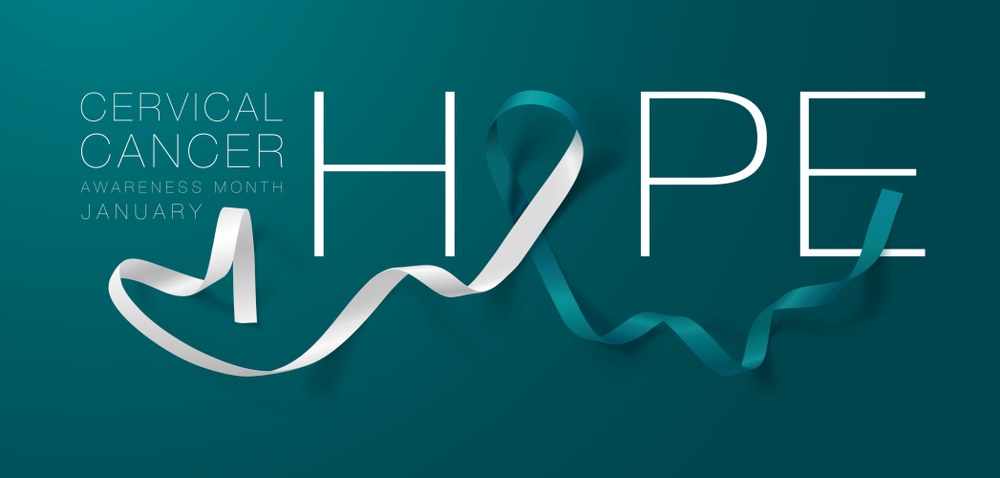Cervical Cancer Awareness who is at Risk of having Cervical Cancer
A parcel came in for you said my partner; I was smiling and thinking what it was and who might have sent it. The smile faded gradually while I opened the parcel only to find out it was an invitation for a free Cervical Screening test by the National Health Service (NHS).
A lot of what ifs’ crossed my mind; what if the screening detects abnormalities? I brushed the feelings aside and continued with what I was doing. A few days later, I sat down and reminisced over the death of my maternal aunt; she died of breast cancer……
When I heard the news of her death, I was angry she allowed it to get to the stage where it couldn’t be managed before voicing it. At that moment, there was this gentle voice within me saying, what if she had received a free breast cancer screening earlier but declined? Immediately, I knew I was treading that same path, and I made up my mind to do the needful, which was going for screening.
Like me, most people have neglected to do the right thing for reasons such as ignorance and fear. According to the World Health Organization (WHO) 1, cervical cancer is the fourth most common cancer in women. In 2018, an estimated 570 000 women were diagnosed with the disease globally, and about 311 000 women died from it.
Knowing is not enough. Protect yourself
Do you know that about 50 percent of cases of cervical cancer occur in women below 45 years of age? Also, carcinoma of the cervix (cervical cancer) is the most common gynecological malignant disease in pregnancy (Copeland and Landon 2011).
The good news is that this medical condition is preventable, and it is one of the most successfully treated among other cancers if detected on time and managed properly. Before going further, here is a brief description of where the cervix is located in the female reproductive organ.
The female reproductive organ is divided into two:
- The external genitalia: The organs of the external genitalia include the mons pubis, labia majora, labia minora, clitoris, vestibule, the greater vestibular glands, and the bulbs of the vestibule.
- The internal genitalia: The organs of the internal genitalia include the vagina, uterus, two fallopian tubes, and two ovaries.
The cervix itself is part of the uterus, also known as the neck of the womb, as it is located within the lower part. The uterus position is supported by several ligaments, and those at the cervix level are the most essential.
“As the head needs the neck to function, the uterus needs the cervix.”
What then is Cervical Cancer?
It is a tumor that can be found in the cervix. It is caused mainly by a viral infection called Human Papillomavirus (HPV), typically 16, 18, and 33. So far, these serotypes are the most crucial factor in developing cervical cancer.
There are two types of cervical cancer cells:
- Squamous cell carcinoma. The squamous cell carcinoma starts in the squamous cells lining the outer part of the cervix, which projects into the vagina. Most cervical cancers are squamous cell carcinomas.
- Adenocarcinoma. The adenocarcinoma starts in the column-shaped glandular cells that line the cervical canal.
Sometimes, both types of cells are involved in cervical cancer.
Who is at risk of this condition?
Anyone with a cervix is at risk. These include trans men, intersex people with a cervix, and non-binary people. Other people likely to get this disease are:
- Those with a weak immune system, such as HIV/AIDS
- If you have had vaginal, kidney, or bladder cancer before.
- If you have given birth to multiple children or had children at an early age, usually less than 17 years old.
How am I at risk?
Your risk of getting cervical cancer is increased with the following
- Other sexually transmitted infections (STIs); having other STIs such as chlamydia, gonorrhea, syphilis, and HIV/AIDS increases your risk of HPV
- Early-onset intercourse, multiple sexual partners
- Smoking
- High parity
- Lower socioeconomic status
- Combined oral contraceptive pill
What do I need to look out for?
Common signs of taking note of are:
- abnormal vaginal bleeding like post-coital (after sex), intermenstrual or postmenopausal bleeding
- abnormal increase in vaginal discharge
- Pelvic pain during intercourse.
I am pregnant! Can I still have this cancer?
Yes, you can. Remember, once you have a cervix, you are at risk! Screening can be detected by conducting a Pap smear screening, especially for women with vaginal bleeding before the 24th week of pregnancy. Hence, if you experience vaginal bleeding, it shouldn’t be taken lightly as this can be life-threatening to you and the fetus.
What then is the way out?
Cervical cancer screening!
Does age matter before I can be screened?
Yes, you and many other women under this grouping are eligible for the screening.
- Women within 25-49 years: 3 yearly screening
- Women within 50-64 years: 5 yearly screening
Other unique situations are:
- When pregnant, screening is usually delayed until 3 months after delivery, except for a missed screening or previous abnormal smears.
- You have never been sexually active; people who have never been sexually active are at low risk of getting cervical cancer. They can wish not to get screened.
- The disease is not common in women younger than 25 years; still, changes in the cervix cells are common in this age group. The changes usually go back to normal and are less likely to transform into cancer.
Preventive Measures
Effective ways to lower your risks are:
- Immunization: Taking a 2-dose of HPV vaccines from 12 years old and above with six to twenty-four months apart from the initial dose. You need to know that thirteen-year-old boys and above are eligible to take the vaccine because HPV 6 and 11 are responsible for genital warts.
- Vaccines should be administered to men who have sex with men below the age of forty-five because it protects against the throat, penile, and anal cancers.
- Practice safe sex by wearing condoms properly before having sex.
It’s cervical cancer month; go for screening today. Remember, whatever happens to the cervix affects the uterus.
Written by: Ejeh Agbi RM







Comments (0)